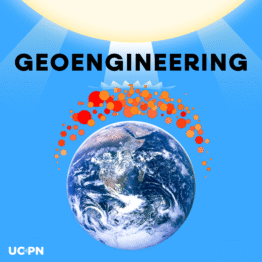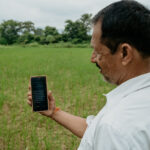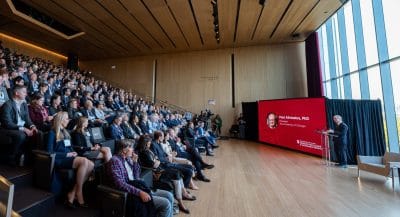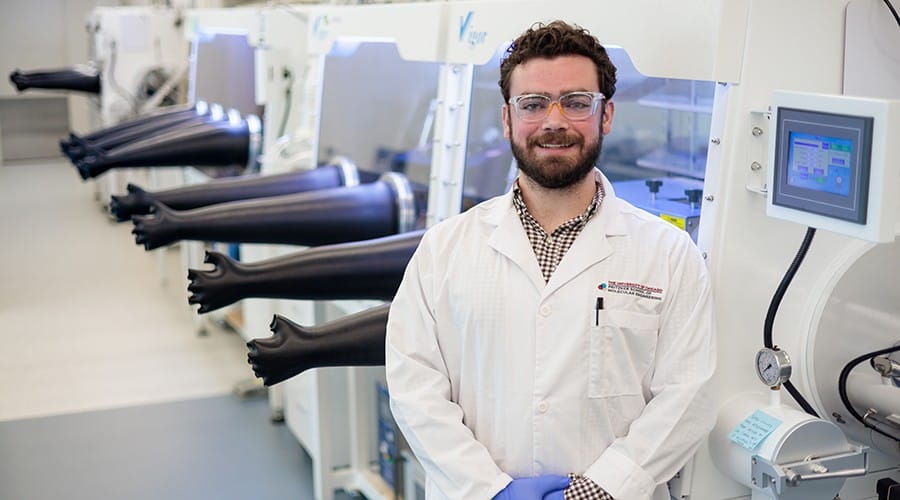
Today’s lithium-ion batteries are an imperfect tool for a fully electric and sustainable future. Although lightweight and fast-charging, they struggle to meet the needs of green energy power and storage on a large scale.
At the University of Chicago Pritzker School of Molecular Engineering (UChicago PME), fourth-year doctoral candidate Thomas Marchese is pushing forward fundamental knowledge in sodium chemistries to help inform the design of a new generation of batteries.
“We want to expand the realm of options so we can mix and match batteries depending on the application,” Marchese said. “Not all batteries are meant to power all types of devices.”
Working in the Energy Storage Research Alliance led by Y. Shirley Meng, the Liew Family Professor in Molecular Engineering, Marchese is investigating the potential of sodium borohydride, a solid-state electrolyte that is less flammable and can pack more power than traditional batteries. A viable sodium-based alternative could also reduce the environmental impact of lithium mining and boost U.S. energy security. Most lithium is mined abroad while sodium is widely available in the U.S. and less vulnerable to supply chain disruptions and geopolitical tensions.
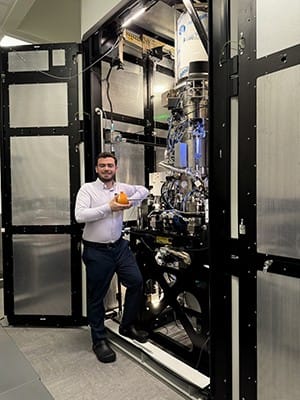
Most days, Marchese spends his time at Argonne National Laboratory, which UChicago manages for the U.S. Department of Energy. There, he uses the Spectra Ultra X Iliad, an advanced scanning transmision electron microscope that enables Marchese to understand the engineering limitations of existing batteries and the potential of sodium borohydride by studying its chemical reactions with various metals on the atomic scale.
Access to Argonne is one reason Marchese chose to study at UChicago PME. “Other PhD programs I considered told me that by my second or third year, I could come out to Argonne and spend a week there,” Marchese said. “Shirley [Meng] told me I would spend most of my day at the national lab. From a research and career development standpoint, that made UChicago a much more exciting option.”
“Thomas had a lot of options of where to pursue his PhD degree,” said Meng. “My group was able to attract him because the unique combination of academic rigor and hands-on experience with cutting edge tools at UChicago and Argonne.”
“We want to expand the realm of options so we can mix and match batteries depending on the application.”
Doctoral candidate Thomas Marchese
Working at Argonne is a serendipitous reunion for Marchese. He first visited the lab as a high school student in suburban Chicago. His sophomore year, Marchese tagged along to one of his father’s college alumni gatherings and toured Argonne. There, he learned about Argonne’s synchrotron, the Advanced Photon Source, a particle accelerator that was as big as a baseball field that to this day reveals nature at the smallest level. This visit, along with family trips to the local Museum Science & Industry, helped clarify Marchese’s career path into science and Engineering.
Today, he pays it forward by participating in outreach events, including UChicago’s South Side Science Festival. Thanks to support from the Meng lab and industry collaborations, Marchese brings a desktop scanning electron microscope to show objects, including a penny and a bee’s hair, under extreme magnification.
“I still remember the demonstrations on glass blowing and solar cell cars that I saw as a kid,” Marchese said. “It means a lot to me to come back home and take on the role as an educator and show the Chicago community that science can be fun.”















